Boards > Scriptwriting Questions.
I am currently writing a script for a sitcom I am making with my friends, and I want it to look professional. I have looked up a number of sites that show you how to do it, but I get confused. Do you think it would be possible for you to send a BAL script or a sample Groommates script or something?
It's possible we have something laying around that could help.
Better yet, tell me here what you need to know, and I'll run you through the general formatting. This is a great thread for all new screenwriters, so -- this goes for everyone, feel free to ask us anything about scriptwriting, be it formatting, structure, plot, anything at all.
Well, right now I am having trouble with the format.
First off, I only have Courier New, and not plain old Courier. Is that ok? Other than that, I'm not sure how to set up the margins on Microsoft Word.
There is such a small difference between the Courier fonts, that it really doesn't matter.
As far as etting it up in Word -- that's fairly difficult and I'd be willing to be there's a tutorial for that online somewhere. I'd suggest using a scriptwriting program, though. Celtx (http://celtx.com/) is free, easy to use and should do everything you need it to do.
Thanks again sooo much ^_^
I just now downloaded it.
Uhm...what is the thing called that goes beneath the scene heading? Is it Action or just Text?
Action.
It should be:
Scene Heading: INT. HOUSE - DAY or EXT. GARDEN - NIGHT) where INT is interior and EXT is exterior.
Action: JOEY lies on his bed and stares at the ceiling.
Then, when the dialogue starts:
CHARACTER NAME (in CAPS), and underneath, centered, is the character dialogue.
And it goes on from there.
Do you have any tips for a first time writer
who wants to impress a school admin? (or anyone for that
matter)?
Watch good entertainment. If you're watching a show, devour TV shows -- Sopranos, Rescue Me, Arrested Development, The Office, Seinfeld, Pushing Daisies -- they're all different and will teach you a lot. Watch them and study them, how do they use structure? How do they use plot? Characters? Dialogue? So on and so forth.
Read scripts. A LOT of scripts. You can find them online. Read, read, read and get a feel for what your script should sound like.
Structure. Learn about structure, both film and TV structure. We usually use the three-act structure for every episode -- read about what that entails and follow it. Structure is key to making a good script.
Dialogue: Brevity is the soul of wit -- keep it quick and short. Say a lot in a few lines. This is especially essential in comedy -- short, quick beats is how comedy flourishes. And keep it realistic -- listen to how people talk and learn from it.
Characters: Comedy or not, make these people real, no matter how crazy they may be. The stakes, for them, should always be high. Comedy is the funniest when the characters take their situations seriously -- to them, it should be about life and death.
Plot: Think of an interesting idea. Capture your audience. Create an interesting world with interesting people. Give us a reason to keep coming back and watching your show.
Finally, if you're writing a comedy -- be funny. That's the most important thing of all.
I hope that helps!
-Yuri
Hahaha, thanks for the advice. I'll be sure to follow it ^_^
How would I write when the opening credits are?
And how would I write when there's a new scene? what if the scene has the same scene heading?
That's information you or your director decides in post production (as far as credits) -- unless you want to note where they are specifically, in which case you can write it in the action, as:
Note: Credits run through the first scene.
Usually, this isn't necessary though.
What do you consider a new scene? If there's a scene between David and Jennifer in a living room, and a second scene, right after, in the same living room, with two other characters -- well, it'll just be an awkward cut. You generally want to move around. If the two characters enter right after David and Jennifer leave, then you can keep it on the same scene.
If there are two scenes happening in a house, you can be specific in your headings:
INT. HOUSE - KITCHEN - NIGHT
INT. HOUSE - LIVING ROOM - NIGHT
...so on and so forth. A new scene is a new location, generally (unless there are specific circumstances, like a passage of time or whatever.) So, basically, every time you go to another location, you'll be writing a new heading, which signifies a new scene. Hope that makes sense.
Yep, it makes more sense now. Thanks ^_^
And I guess I won't need to write when the opening credits take place since I am the director and editor, haha.
This topic is really helping me write my script. I'm want to start scene 2, but I'm flip-flopping over two ideas, but after that, it should be easy.
How long do you think a pilot should be? Not necessarily the first episode though. Would you say around 10minutes is good? Or more?
Depends on your goal. A real Pilot is usually longer, around 45 minutes. And a Pilot implies the first episode -- so, whatever your first episode is, that's the Pilot.
Time is heavily dependent on you. Are you going for a short, internet-ready sitcom? Then 8-9 minute episodes are your best bet (at least for right now, that may, I hope, change.) If you're going for TV-style, however, then a Pilot can be anywhere from the standard 22-minute episode, to a longer, 45 or so minutes.
It's all up to you, really.
Ugh, this is kind of difficult. Hey, is there anyway I could send you the first scene and you could tell me how I'm doing (in your opinion, of course)? It's like 3 pages, and it's more of a short intro type thing.
thanks for the insight. my friends are going to try to make some shorts in the next month or so (short videos, not the items of clothing) and i have been designated the writer. it's probably really unnecessary to make it professional, but i think it could be fun.
Christian -- Normally, I'd say yes, but I'm completely swamped right now. Between doing Break a Leg and working 4-5 other freelance writing jobs (of which script reading is one), I really couldn't dedicate the time. But keep me updated on your progress and let me know if you have any more questions.
Kevin -- The thing to remember is that everything has a structure, even a one page scene can and should have a beginning, middle and end. Keep that in mind and it'll make your shorts much better. They'll also be lighter and perfect for summer time.
It's ok, I understand =D
And yeah, I'll keep you updated on my progress, and I'm sure I'll need some more help later on. Then, once the pilot is made, I'll show you guys! haha
Christain: I am currently being asked to evaluate some scripts at my school for my Christmas concert (apparently they see me as a good writer) Is there anway I can check it out? I dont want to judge it,I like reading scripts! If you want to, that is.
it just popped into my head, if you want to, ill figure out a way...I just dont know if I want to put my adress on this site...sorry BaL haha
Sorry for the long comment :D
Just an update on my script. I showed my first scene (3 pages) to some of my friends (one of whom is going to be in it) and to my computer graphics teacher (who is a real artsy and critique type of dude...he's like 25 years old) and they both really liked it, and my teacher thought it was clever and he laughed after reading it, so I'm happy.
Sam: Thanks so much for the offer, but nevermind =) If I do need some more opinions on it, I'll be sure to ask you. Thanks again!
This doesn't really have to do with script writing, but more of the show as a whole.
And first I just wanted to make a sitcom that really didn't have a big plot, but then I thought about it and realized that that wouldn't be much fun, and really wouldn't survive more than just a few episodes (although Sunny In Philly does, but I'm not that good).
So I was wondering how you did it, like, did you already know what was going to happen (like in the entire first season) when you started writing your scripts, or did it just come to you???
Most successful plots are premeditated. As romantic as it seems to just write on inspiration, its best to plan out your story; there will be far less loopholes and you'll find your story more believable. Even if its about giant monkeys in New York.
Learned that from trial and error... and Yuri. Mainly Yuri.
Break a Leg has a plot?
Hey, Christian.
We knew a few things when we started writing -- namely, that David was going to die.
Up until, maybe, Episode 3, we were sort of winging it -- we knew generally what we wanted to happen, but real-life situations were making us change our plot to make things work (i.e. us losing the "set" because Justin moved out of the place we were going to use to shoot Groommates -- this whole plot point, with the set exploding, etc. changed the show in a different direction.) After Ep 3, Vlad and I sat down and, on notecards, laid out the entire season -- roughly. We broke the season down into a 3 act structure, much like you'd do with a movie, and listed what we wanted to happen in each act.
This season finale, for example, is what we consider to be the "end of Act I" -- but for the Internet, we're calling it the end of the first season.
Generally, I recommend plotting everything out. It doesn't need to be set in stone, but an arc for the story and your characters is definitely useful. I know Aaron Sorkin says he doesn't do that, and I think the writers of 24 only plan three episodes ahead of time -- so, in the end, it's really about preference and what you think is the best for you.
I'd say, even loose planning, is better than no planning. Especially because it means you can set up storylines and jokes many episodes ahead of time (Arrested Development was genius at this, with all their hints at Buster losing his hand many eps before it happened.)
Duane -- it does. You just have to pay attention and be sober.
I'm taking a screen writing/film making class in August and I'm extremely excited.
Apparently we get to write our own script and get to cast the kids who are taking acting workshops downtown, I'm pumped.
Thanks for all the help, Yuri!!!
You don't know how much it is helping me out!
So does this mean 3 seasons of break a leg?? =D
I'm working on an indy sitcom as well. We recently sat down and plotted out our season in very general terms -- our strategy was to determine a theme for each episode, and tell a story that somehow (even only vaguely) related to that theme. It really helped in plotting out some of our character arcs.
Question for Yuri: Do you find yourself cutting a lot of material from the script after you've filmed? Meaning, does any get left on the editing room floor, so to speak? Just curious. Great show, keep it up!
This is an awesome thread. I've got a question regarding queries. I've got a short screenplay I'm seriously considering submitting (no idea to whom yet). The only thing really holding me back (besides not knowing who to send it to) is the whole query letter predicament. We've brushed on the topic in a couple of classes I've taken, but nothing that's been very helpful. Would you guys know of any good resources (internet, or books) that can intitiate someone into the sacred mysteries of the query?
Hey, Ern.
Off the top of my head, I'd say Writer's Market (which is both a book and a website) should not only tell you how to write a query letter, but also give you a listing of the people accepting them.
I'm going to look into this a bit more for you and get back to ya.
Thanks!





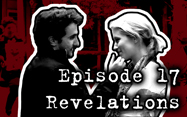










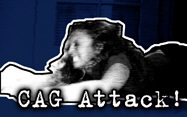
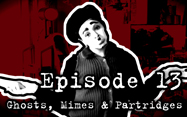

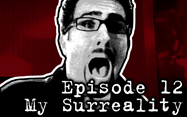
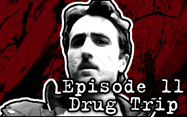








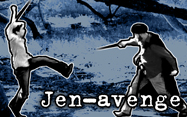



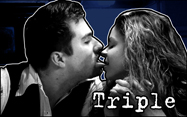






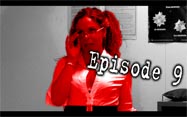
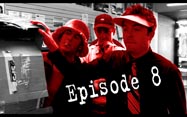
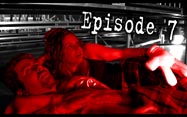

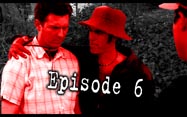
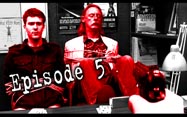

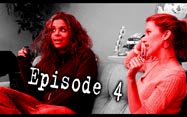

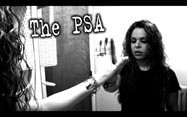


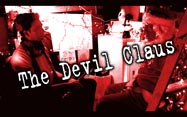
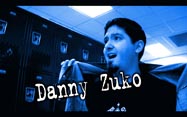
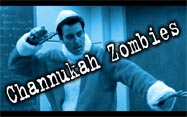
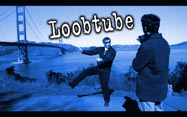

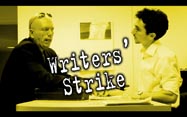
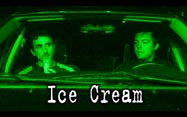

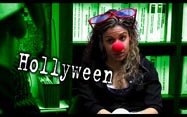
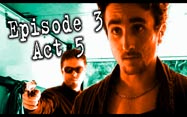
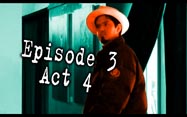
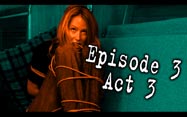
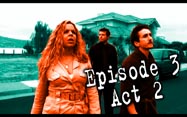

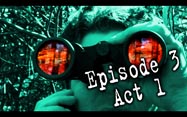



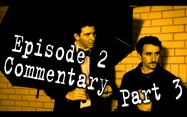

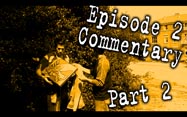

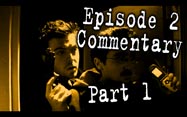

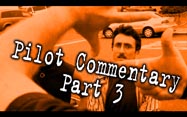

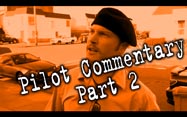

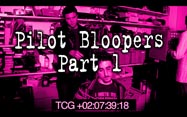
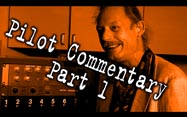
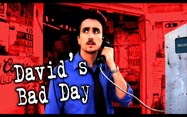



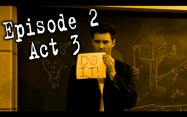
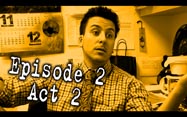
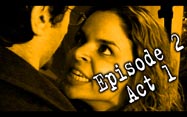
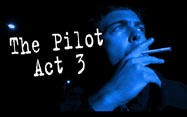
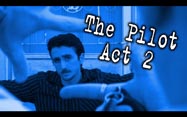
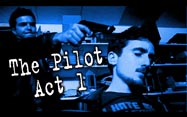


MySpace - Add me!
Facebook - Add me!